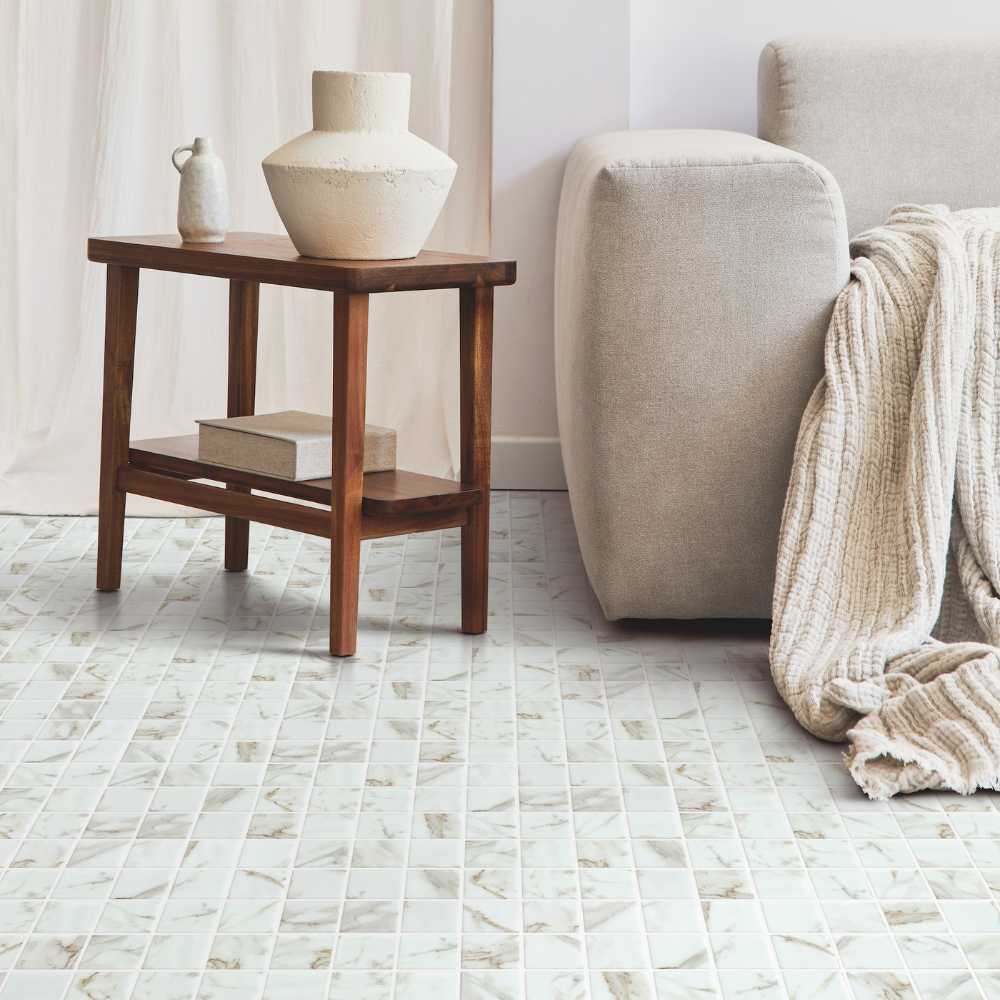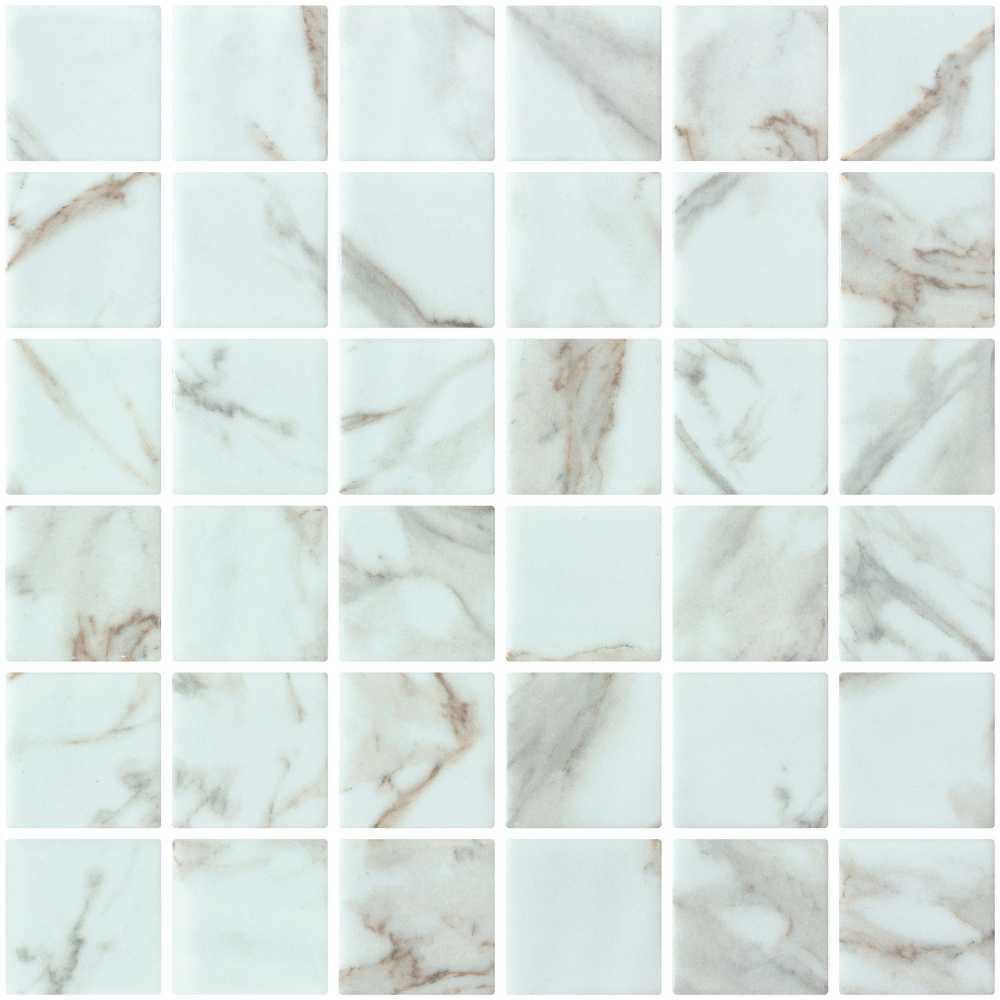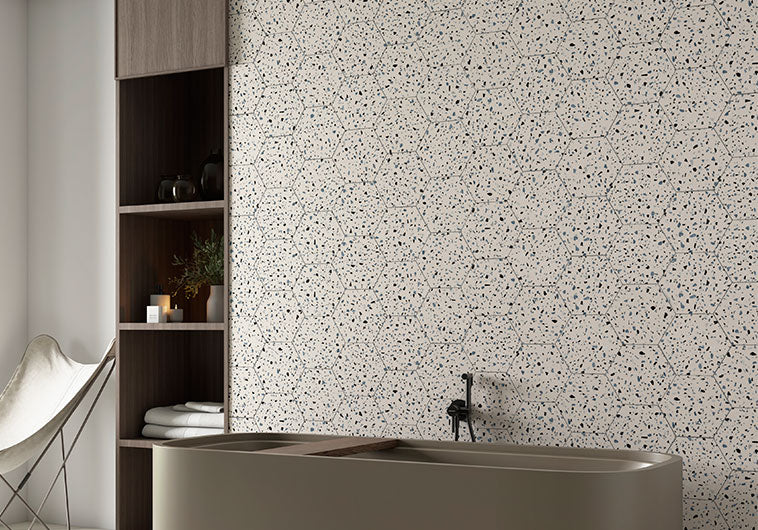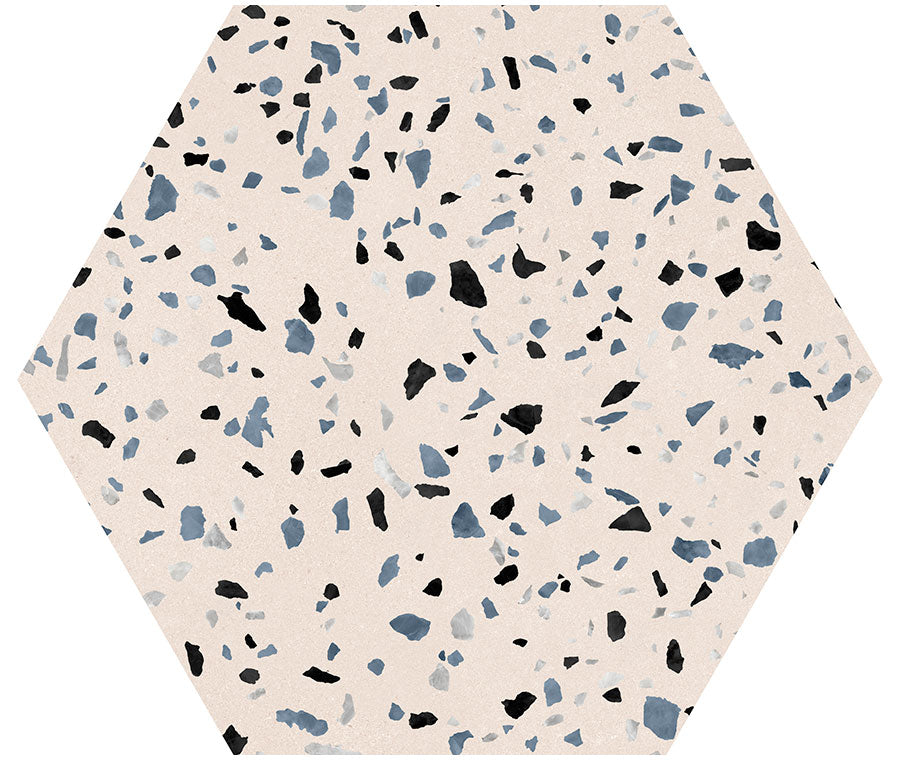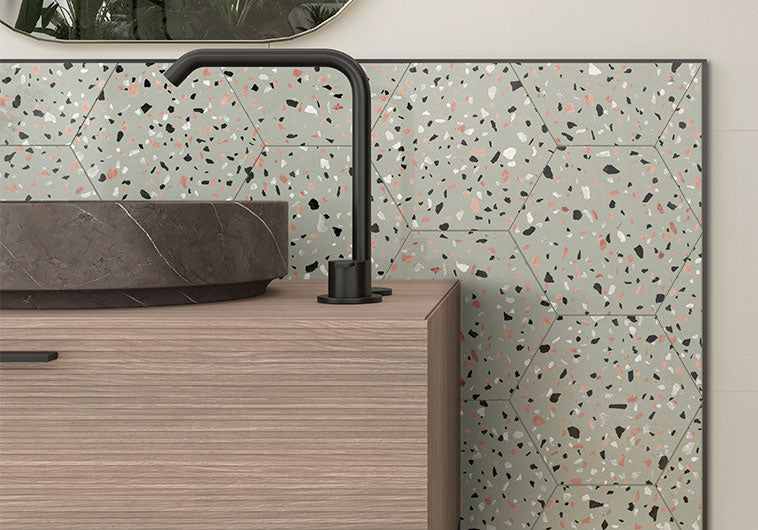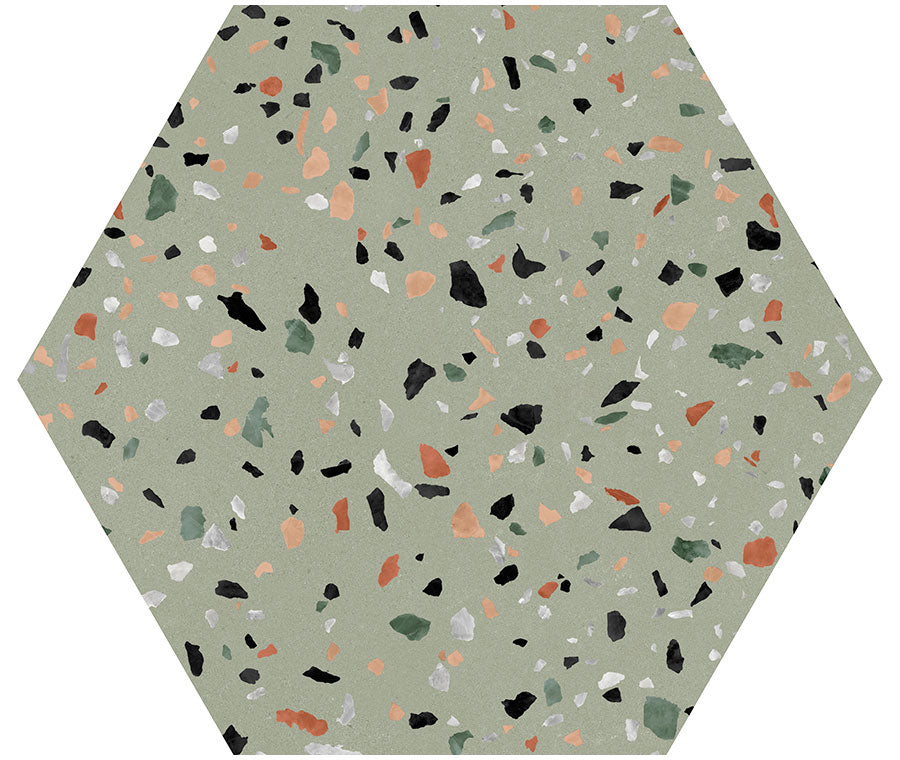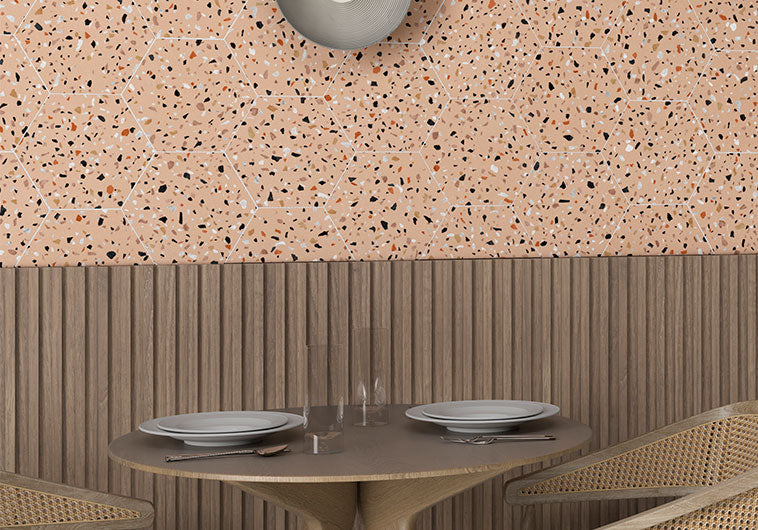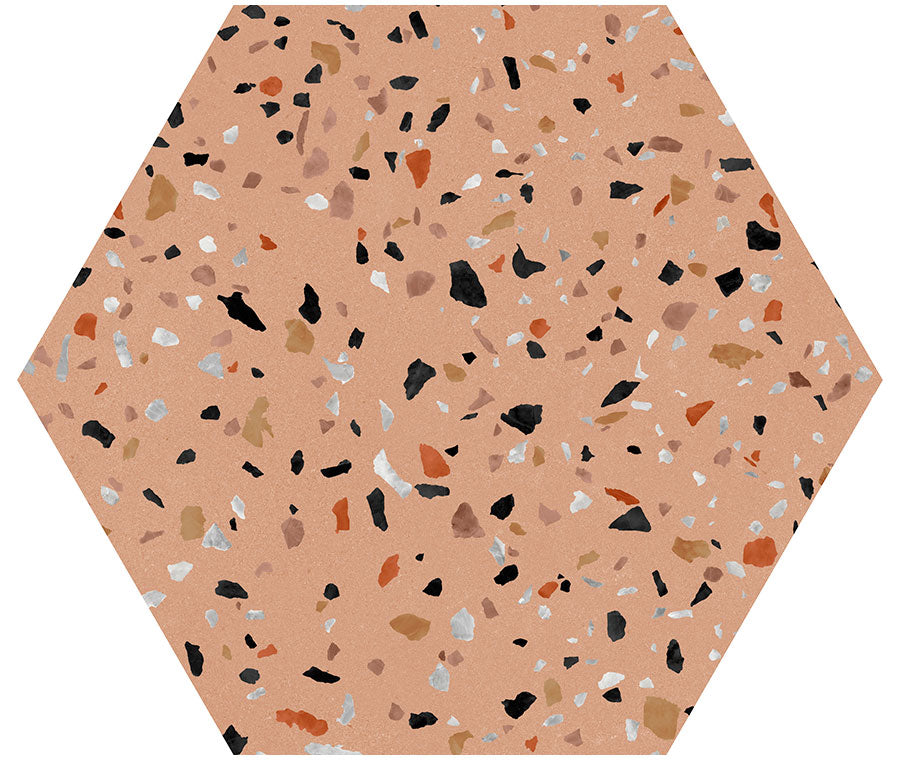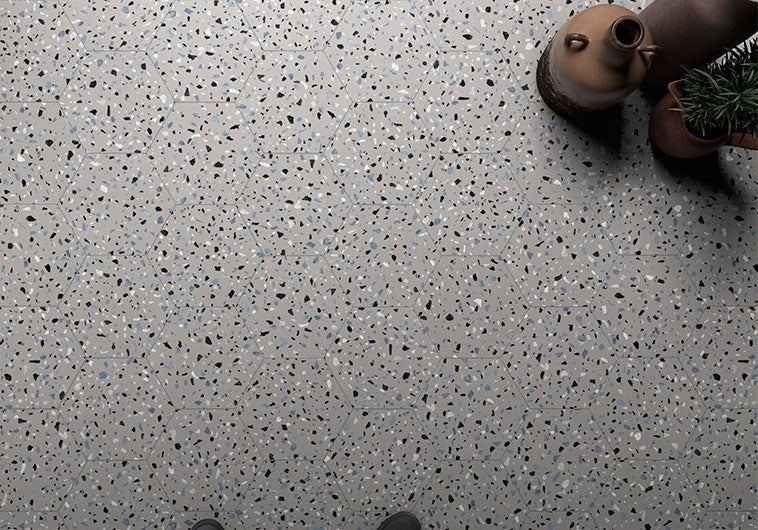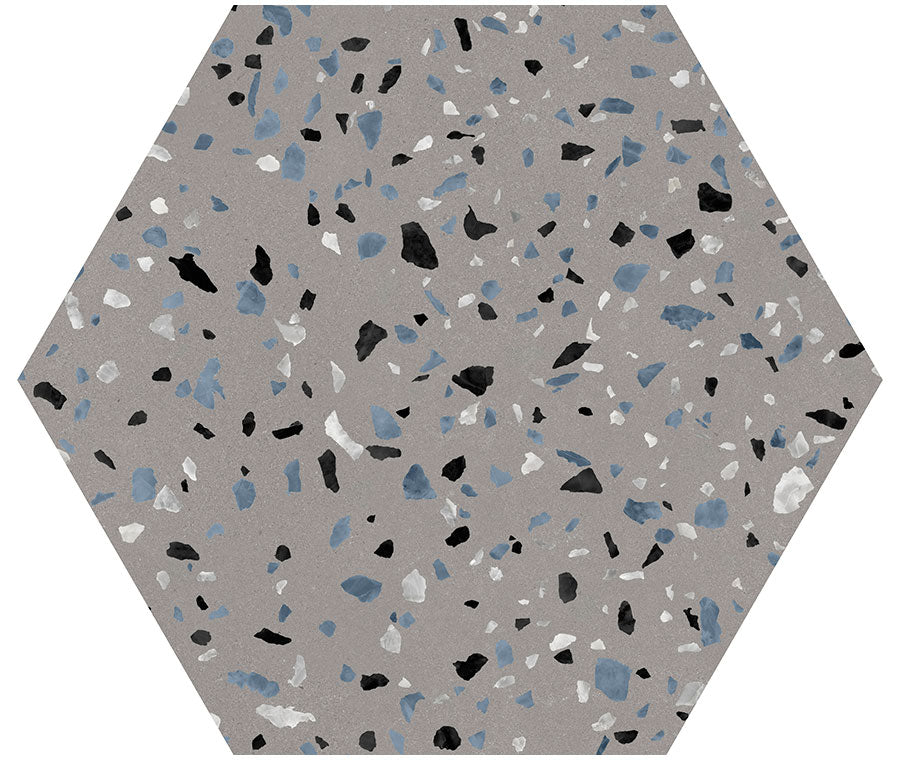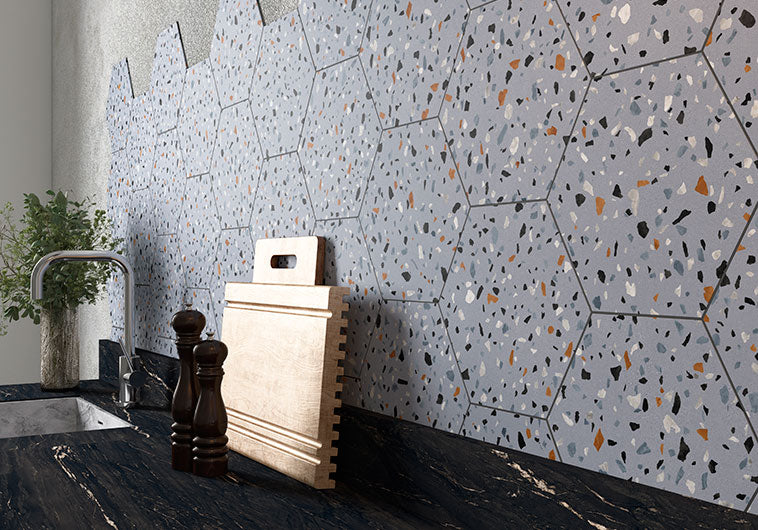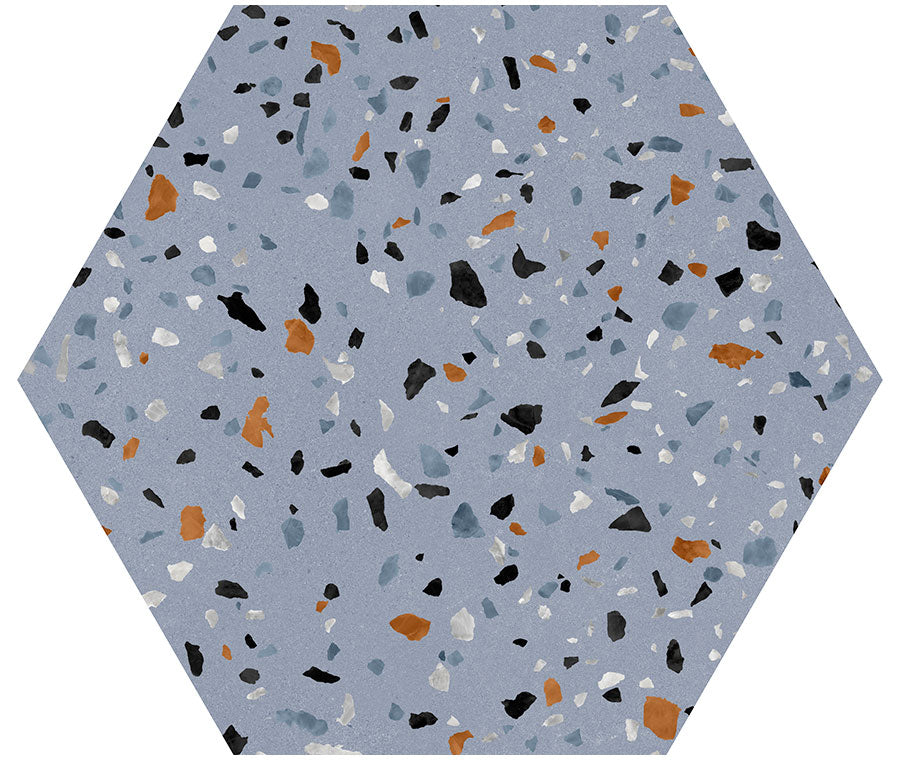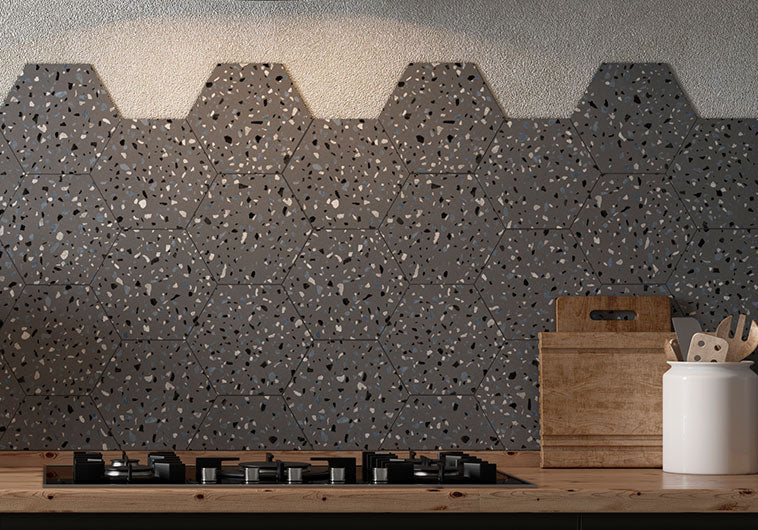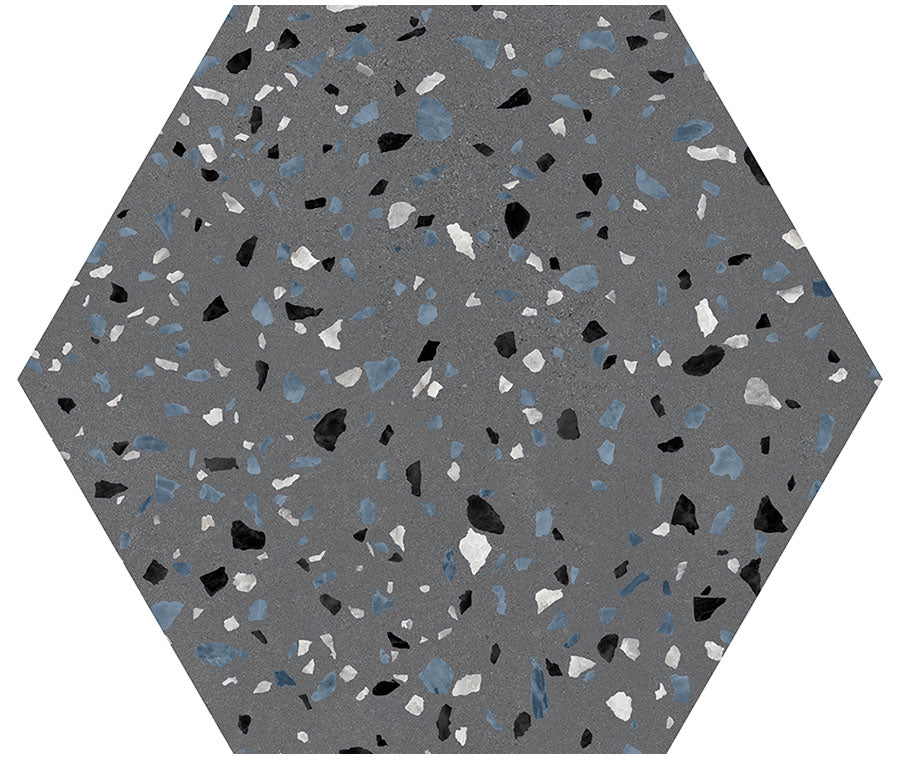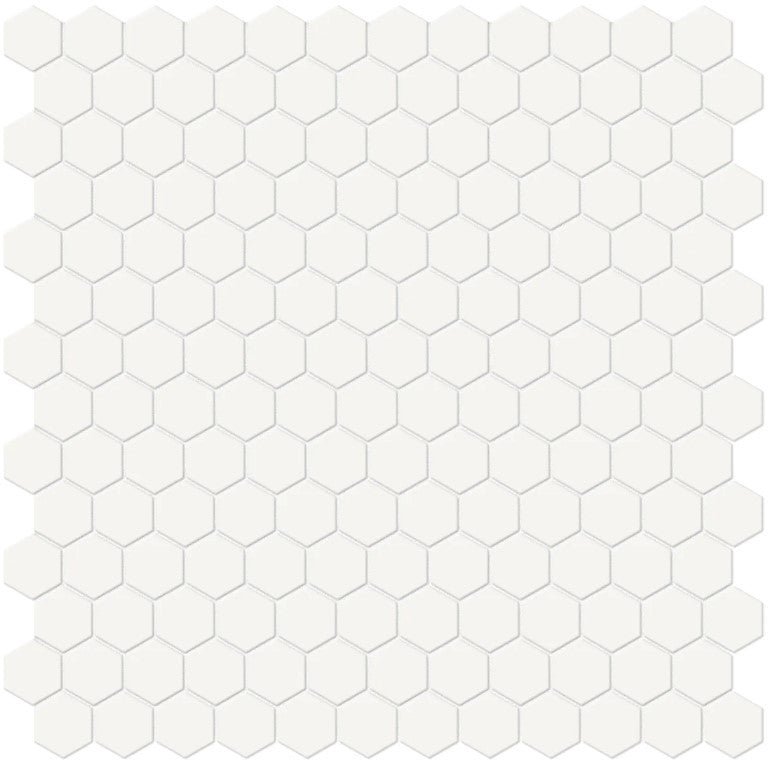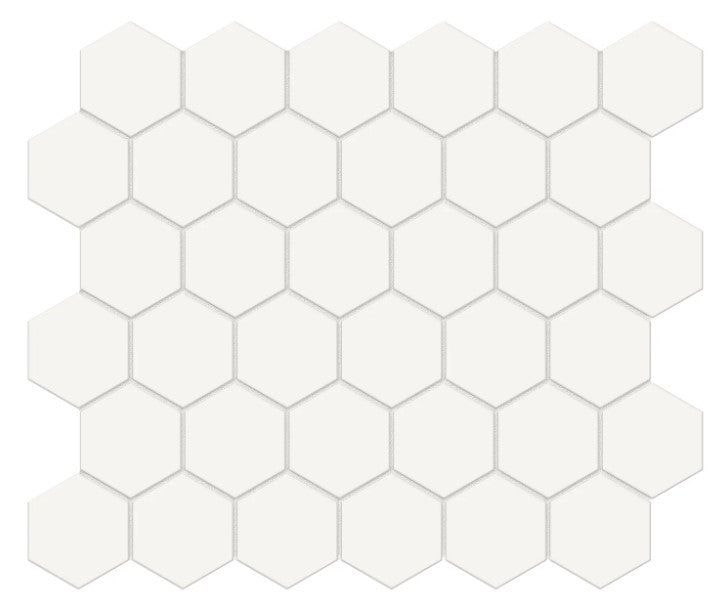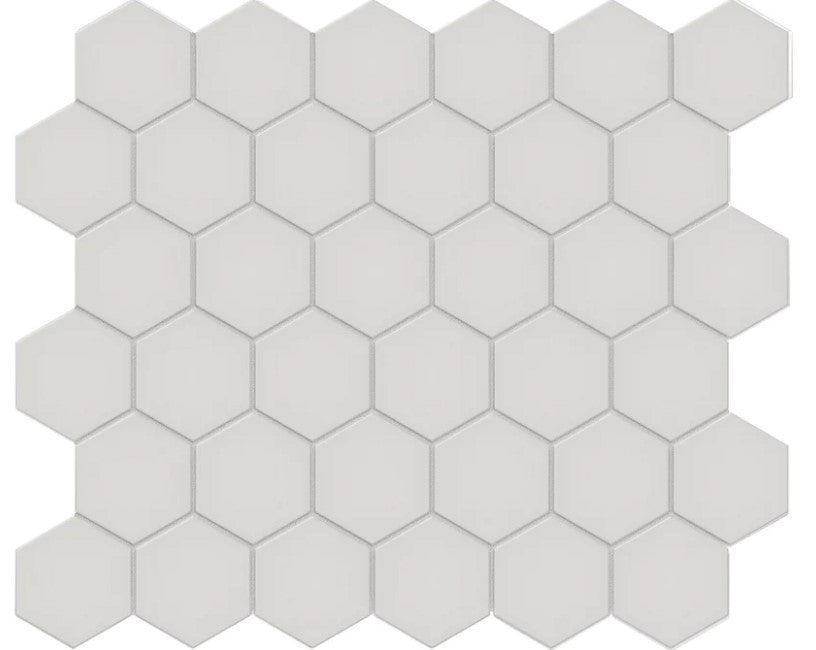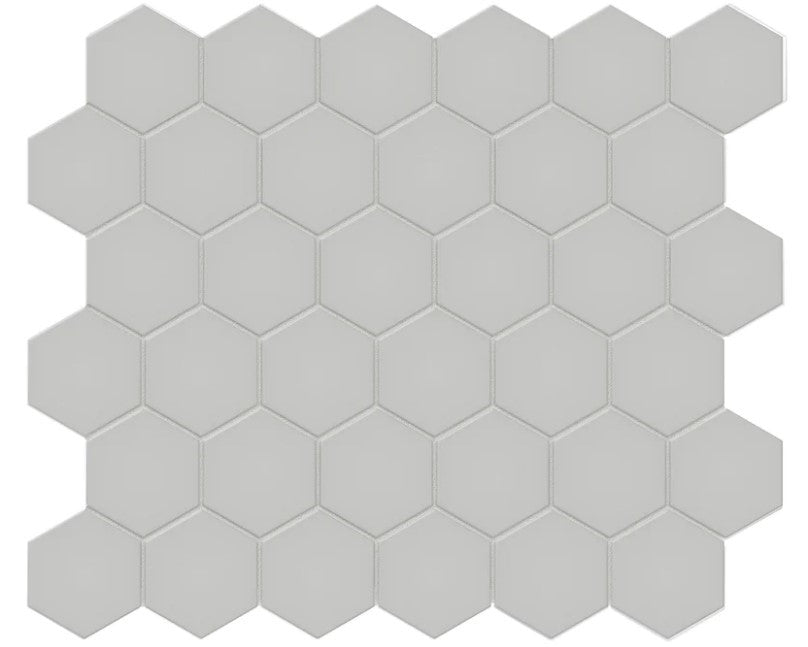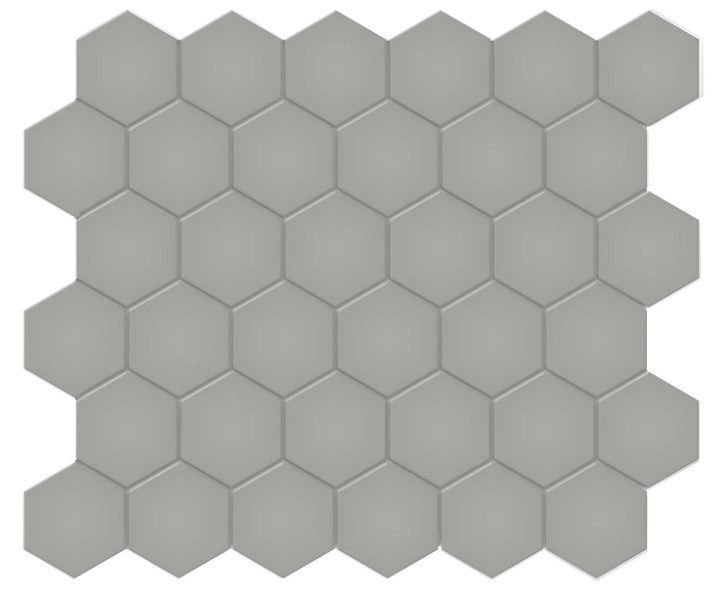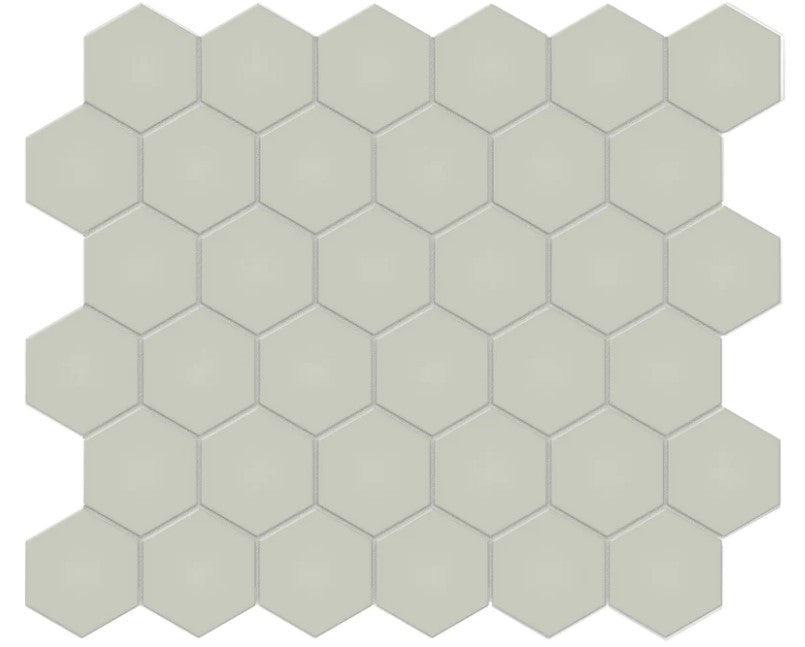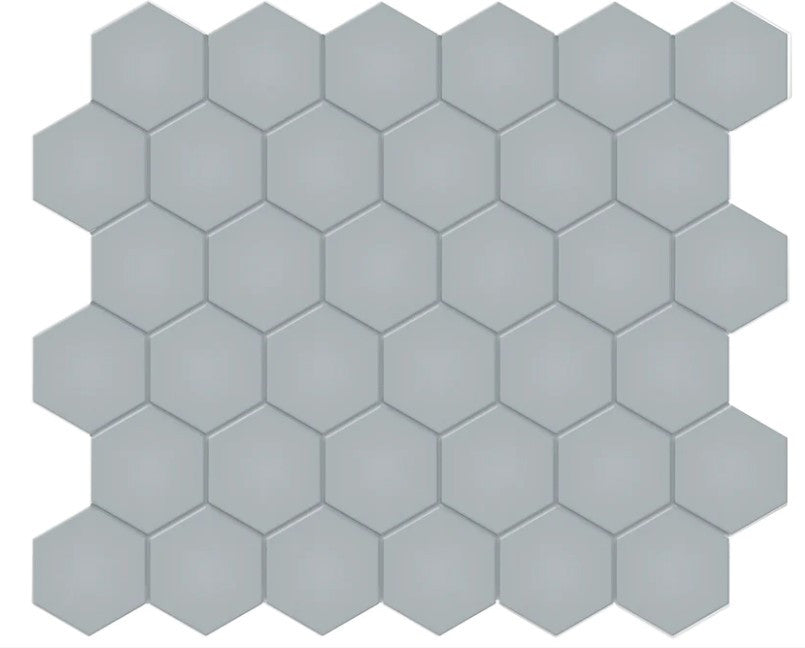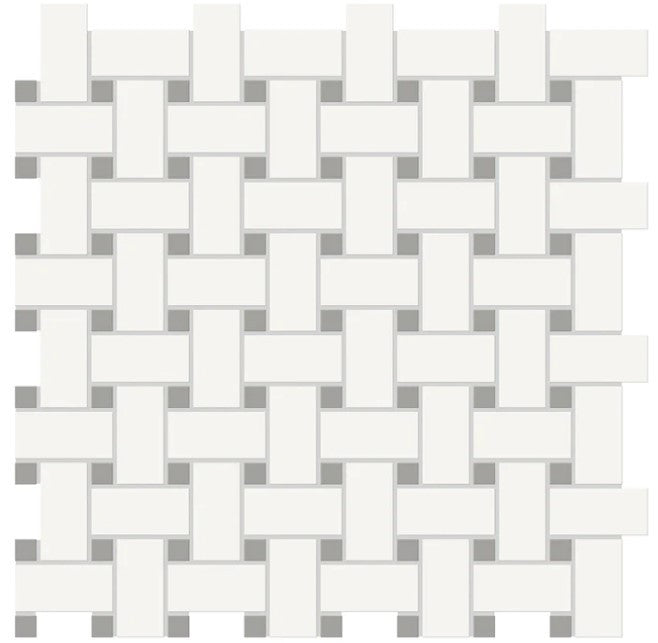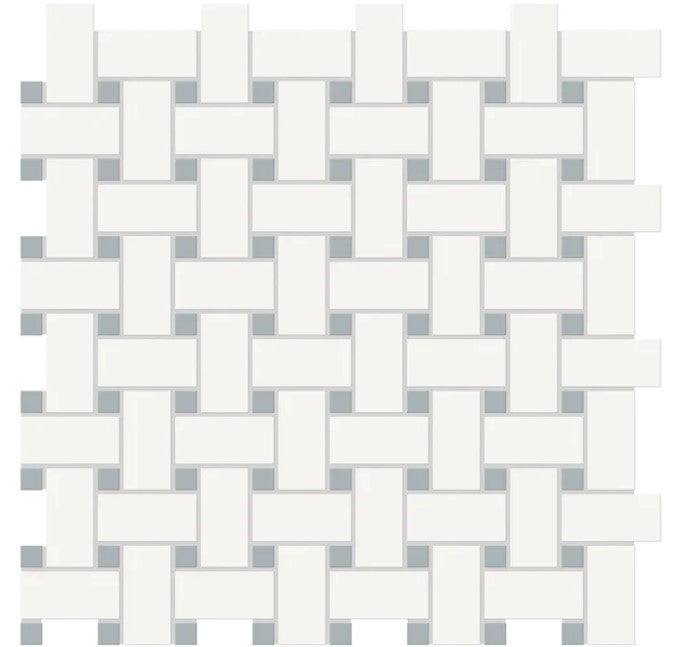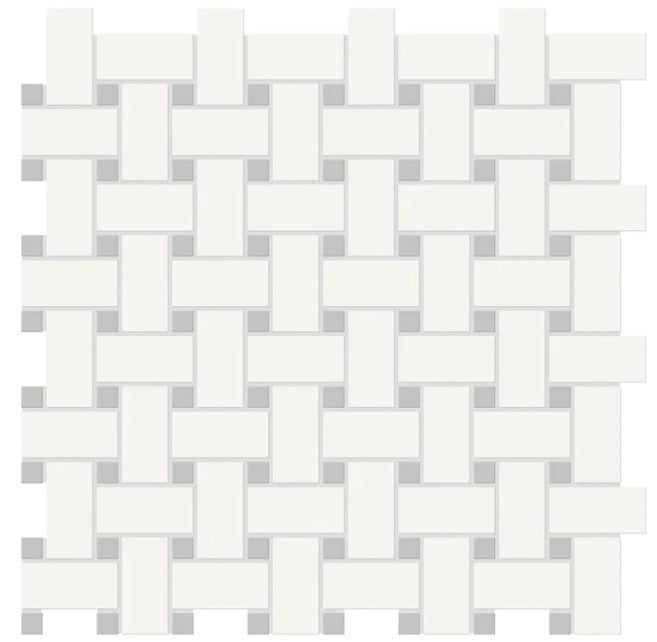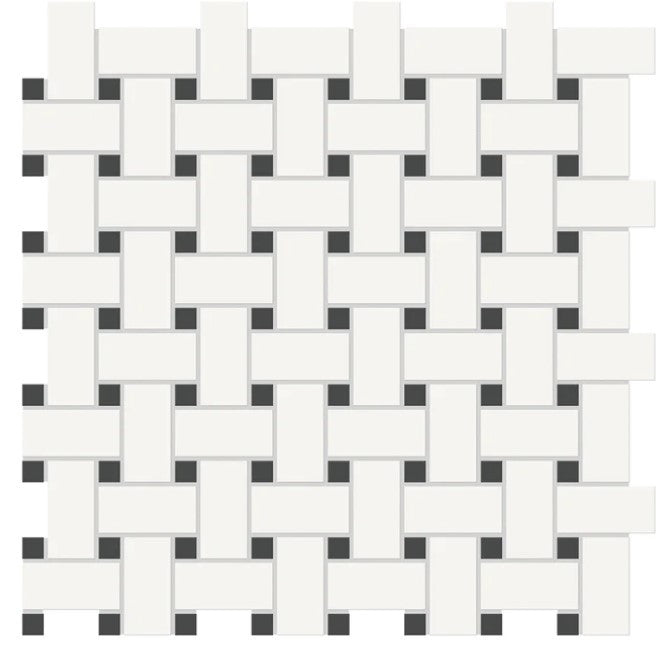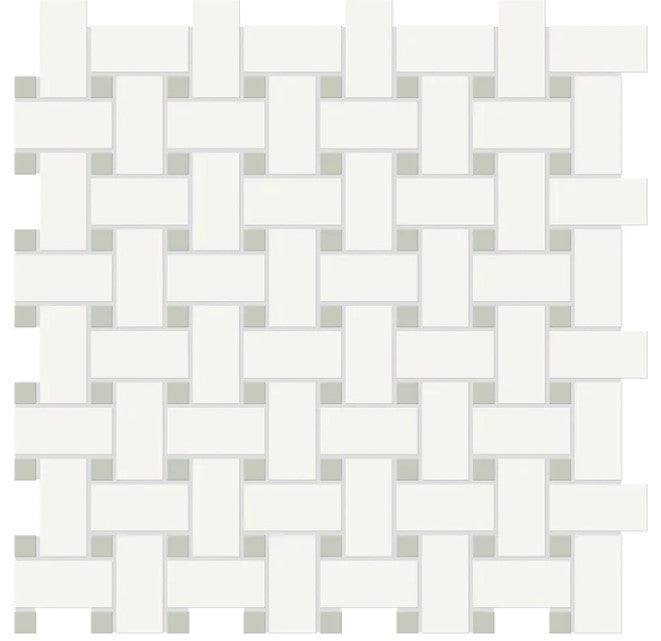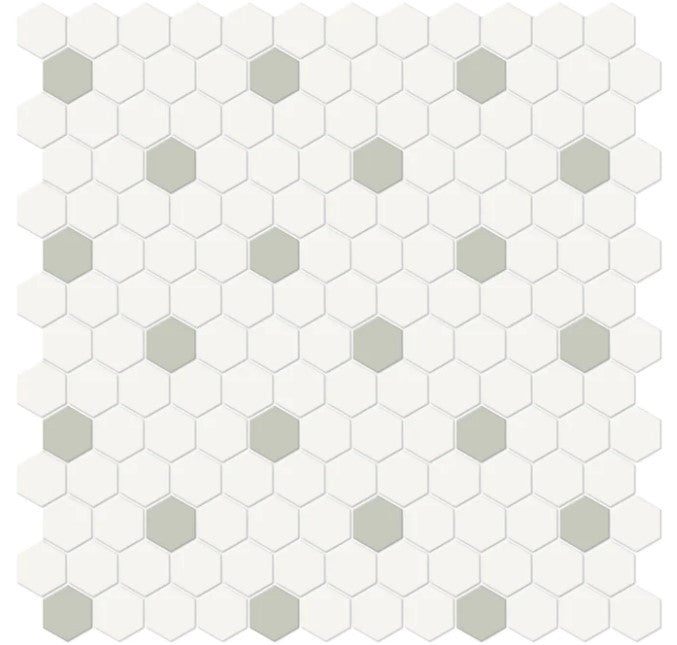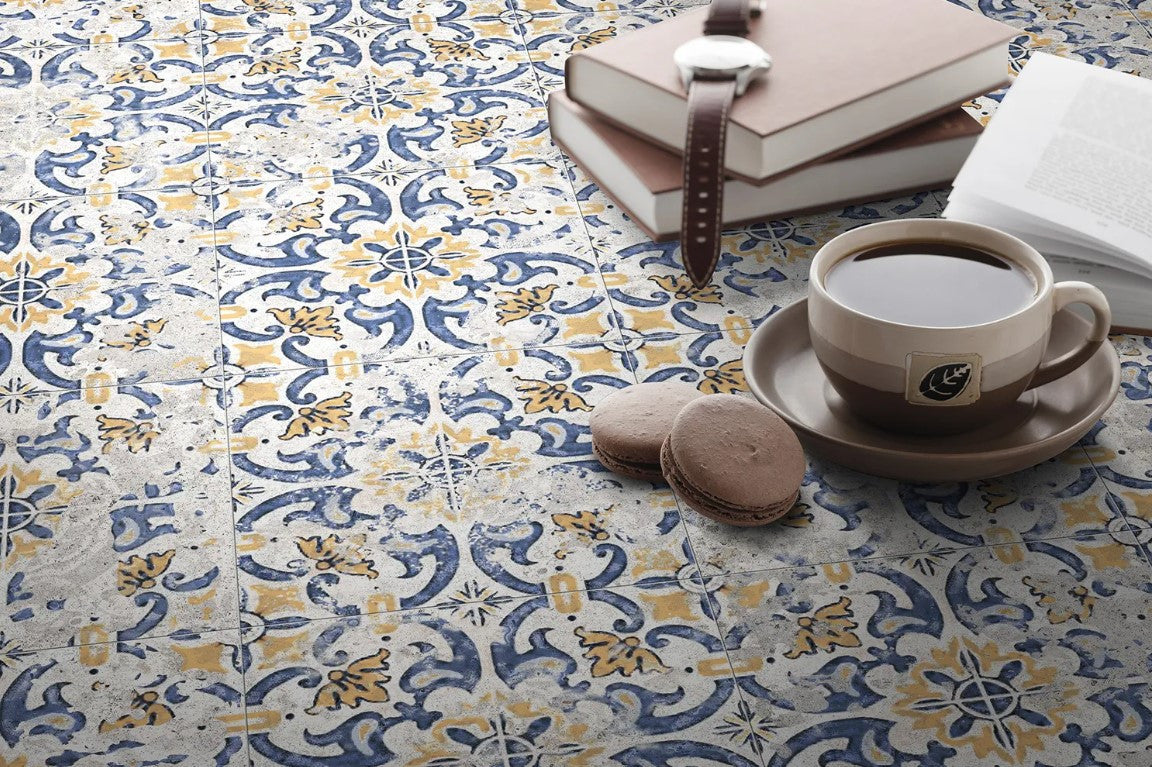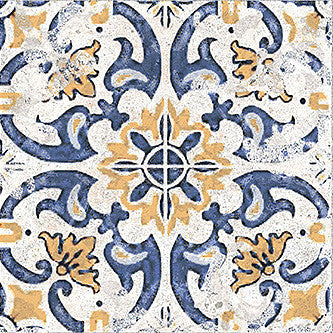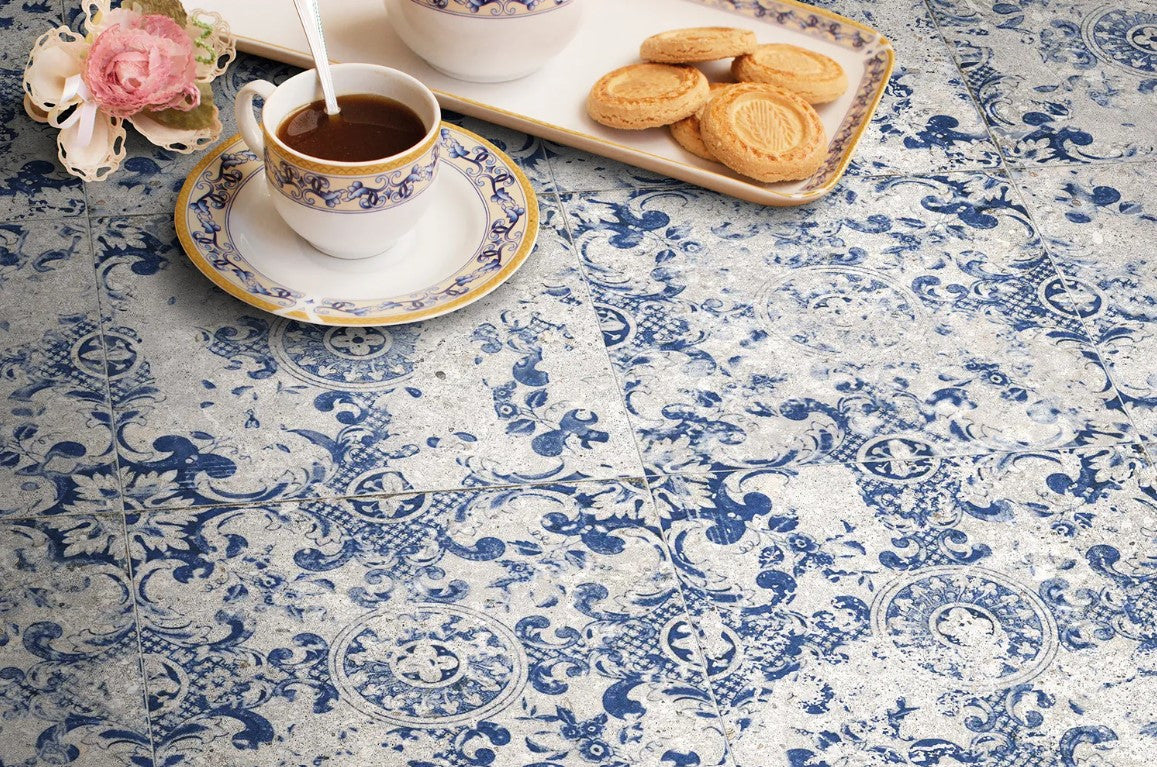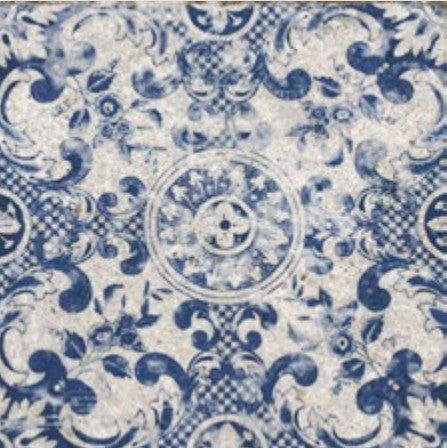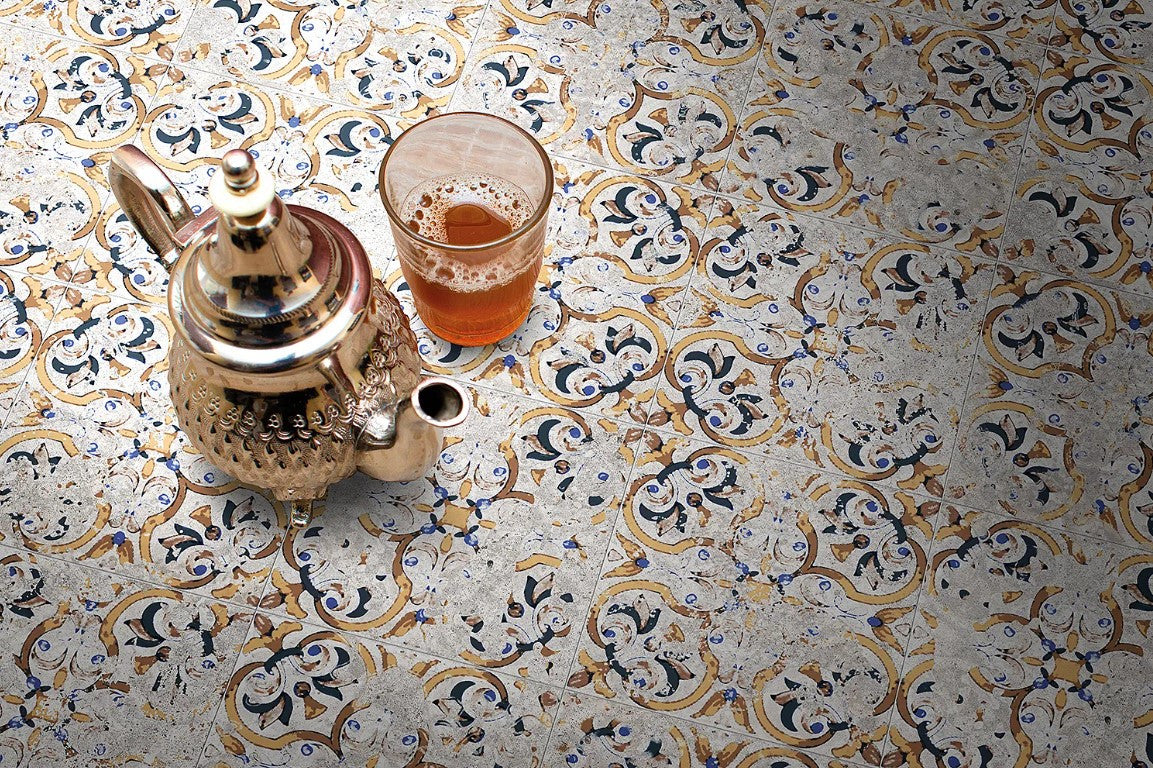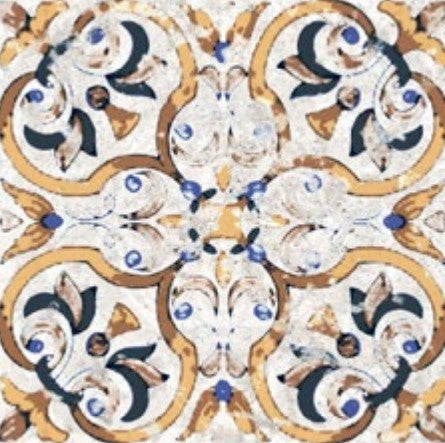The best tile for a shower floor is typically porcelain mosaic tile. Mosaics provide extra grout lines, which improve slip resistance, and porcelain is durable, water-resistant, and easy to maintain. Natural stone mosaics, such as marble or pebble tiles, are also popular for a spa-like feel—just be sure they’re sealed properly to prevent water damage.
Small-format tiles (usually 2" x 2" or smaller) are best for shower floors. The smaller size allows the tile to follow the slope toward the drain more easily, and the additional grout lines improve traction for safety. Larger tiles can be used, but they require more precise installation to prevent water pooling.
Some shower floor tiles can be slippery when wet, but choosing a tile with a textured surface or a matte finish helps reduce the risk. Mosaics with many grout lines naturally offer more grip. Always check for a high slip-resistance rating (COF) when selecting tiles for wet areas.
Clean shower floor tiles with a pH-neutral cleaner or a mixture of warm water and mild dish soap. Avoid acidic or abrasive products that can damage grout or etch natural stone. Regular cleaning prevents soap scum and mildew buildup, and resealing natural stone every 6–12 months will help protect it from stains and moisture.
Yes, you can use the same tile on both the shower floor and walls, but for safety, choose a smaller or more textured version for the floor. Many tile collections offer coordinating sizes and finishes so you can create a seamless look without sacrificing slip resistance.
Do you have more questions?
If we still haven't answered your question, you can contact us below and we will get back to you as soon as possible.

